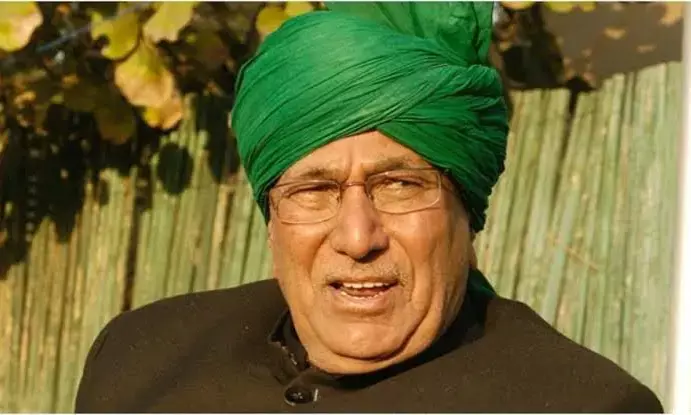Punjab & Haryana HC Acquits Ex-MLA Om Prakash’s Sons in 1995 Murder Case

In a judgment that unearths political undercurrents and decades-old animosities, the Punjab and Haryana High Court has acquitted three sons of former Haryana legislator Om Prakash alias “Om Prakash Hitler” in a nearly 30-year-old murder case. The court found that the prosecution had failed to establish guilt beyond reasonable doubt and cast serious doubt on the credibility of key witnesses and the integrity of the investigation.
A Division Bench of Justices Gurvinder Singh Gill and Jasjit Singh Bedi overturned the 2004 conviction of Manoj Kumar Sihag, Sanjay Sihag, and Sandeep Sihag. The trio had been sentenced to life imprisonment for allegedly abetting their father, Om Prakash, in the murder of 13-year-old Jeet Ram during a marriage celebration in village Chautala on February 26, 1995.
The appeal, which lay pending for over two decades, also abated in part two co-accused, including Om Prakash, died during its pendency.
The case initially began with an FIR lodged under Section 304-A of the Indian Penal Code (IPC) based on a statement by the victim’s father, Madan Lal, who said his son died due to accidental celebratory firing. The investigation, which concluded with an untraced report, was accepted by a Magistrate in 1996.
However, the matter took a dramatic turn over four years later in 1999, shortly after Om Prakash Chautala became Chief Minister of Haryana. Madan Lal submitted an application alleging that his son had, in fact, been murdered by Om Prakash and his sons. The FIR was reopened, reinvestigation was ordered, and the case was reclassified as a murder under Sections 302 and 302/109 IPC.
In 2004, the Sessions Court at Bathinda convicted all five accused and sentenced them to life imprisonment. While Om Prakash and one other accused died during the appeal, the remaining three sought relief from the High Court.
The High Court’s judgment critically examined the timeline and nature of the witnesses’ statements. It noted that key prosecution witnesses, Duli Chand and Bhajan Lal, surfaced only in 1999, more than four years after the incident, and only after the political regime changed in Haryana.
“Both witnesses had close political and personal affiliations with the then Chief Minister Om Prakash Chautala, who was a well-known political rival of the accused,” the court observed.
The Bench noted that prior to the reopening of the case, neither Duli Chand nor Bhajan Lal had approached the police or been cited as eyewitnesses. Duli Chand even admitted during cross-examination that he had not disclosed the incident to anyone earlier and had long-standing ties with Chautala’s family, including having looked after MLAs for Chaudhary Devi Lal (Chautala’s father) at the family’s farmhouse.
Bhajan Lal, on the other hand, had himself been an accused in a separate murder case where Om Prakash had testified against him. He too admitted to holding a grudge against the family.
“These witnesses’ belated statements emerging years after the alleged incident, and amidst a change in political power appear suspect,” the court concluded. It added that their evidence was “procured belatedly at the behest of the investigating agency possibly on account of political interference.”
Adding to the doubt was the inconsistency between the prosecution’s theory and forensic evidence. A ballistics expert confirmed that a .12 bore double-barrelled gun may have been used, but pointed out several anomalies: there were no pellets or wads found in the victim’s body or clothing, and the trajectory of the wound was inconsistent with the alleged firing position described by witnesses.
Further, official records showed that the gun allegedly used by Om Prakash was only entered into his licence after the date of the incident.
The Bench stressed that the “sterling quality of evidence” required to convict the accused was absent and highlighted the lack of any direct involvement of the sons beyond the claim that they had “exhorted” their father to shoot—an allegation unsupported by neutral testimony.
Court’s Findings
Summing up the case, the court observed:
“The evidence brought on record cannot be said to be of such sterling quality so as to unequivocally point towards the guilt of the accused. Quite to the contrary, the possibility of their false implication cannot be ruled out.”
Accordingly, the High Court set aside the conviction and sentence passed by the Sessions Judge, Bathinda, in February 2004. The appellants, Manoj Kumar Sihag, Sanjay Sihag, and Sandeep Sihag, were acquitted of all charges.
Case Title: Om Parkash & Ors. v. State of Haryana
